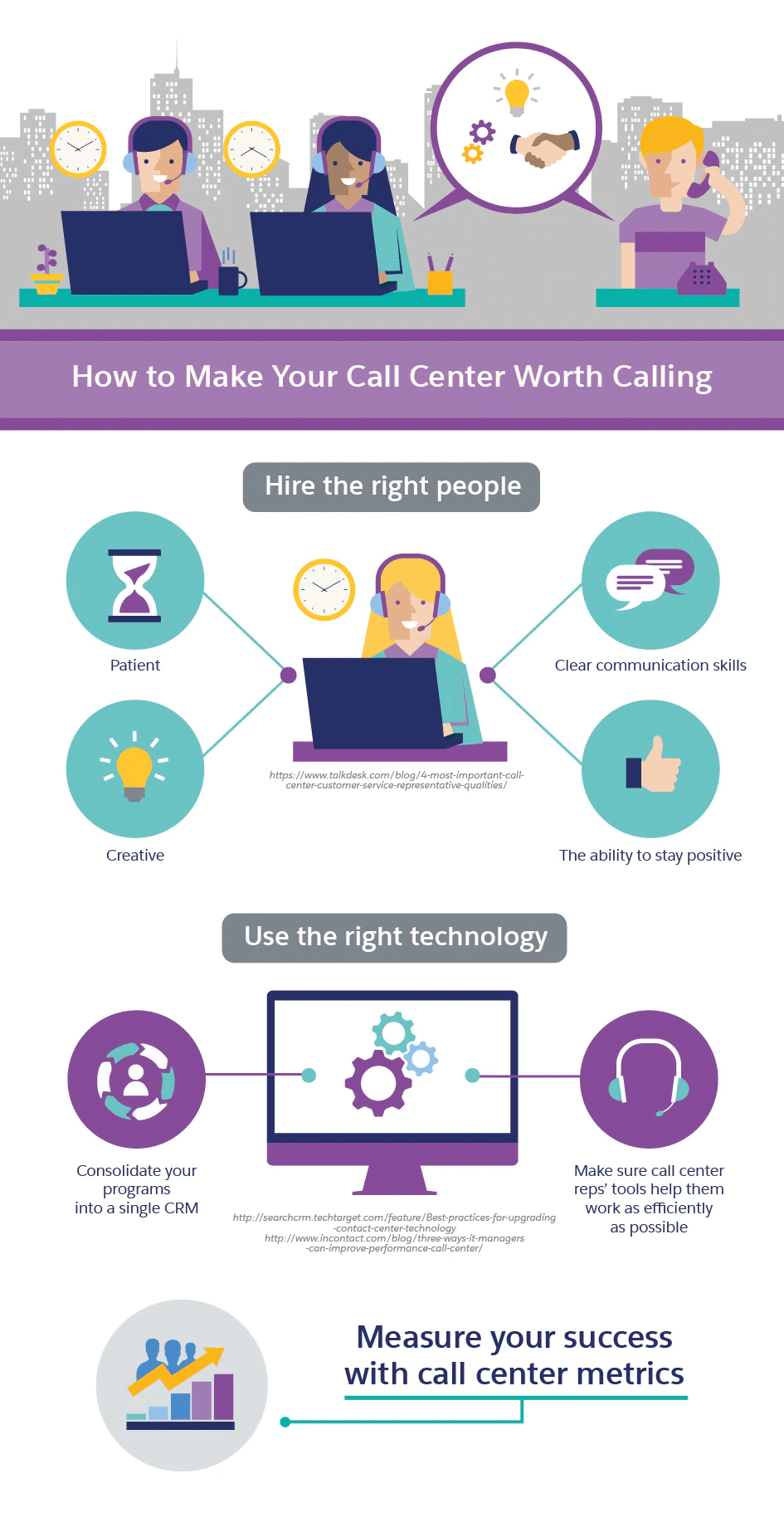Anytime anybody phones up for advice on a product, they are contacting a call centre. Anytime a customer is ringing to complain, they are talking to a call centre. Anytime someone makes a call about a bill, they are phoning a call centre.
You get the picture.
Basically, any sort of communication that happens between a customer and staff member using the phone will most likely be dealt with through the staff at a call centre.
Staff at call centres are highly trained and use the latest communication tech to talk to customers. They know all the answers and give the best advice they can to whoever is on the other end of the line. Call centre workers are fountains of knowledge. Ask them a question, and they know the answer.
And they do it all with grace and decorum, too. At least that’s the hope. Everyone has their off days, but call centre staff always need clear communication, so must forever stick to being polite and friendly. As well as this, a call centre agent needs to know how to use the proper tech. This may be using a VoIP phone, or it may even be using a video call in rare cases.
To handle a high volume of calls or to deal with ongoing customer issues, a CRM platform can also be used. Using this software, a call agent can make notes on a conversation or store the details of customers. This way, information isn’t being missed out and, if your company deals with cold calling, the same people aren’t being contacted numerous times. As well as this, if a customer calls several times about the same problem, different people can handle the situation.
There is a faint idea that with the introduction of chatbots and AI, call centres are becoming a thing of the past. But actually, customer representative jobs are set to grow by 36% from the year 2016 to 2036, according to Hubspot.

Source: TMCnet
When people think of a call centre environment, they picture lots of people sitting in an office, chatting away on their headsets. During COVID-19, this has been a difficult environment to adapt, as social distancing rules are put in place, and the importance of staff safety gets prioritised. All these means, though, is that staff also need training on how to work from home properly and efficiently. Whether companies continue to let staff operate this way, moving forwards is up to them.
Remember that if you are expecting staff to do any sort of employee training, they should be paid for it.
To ensure that all this runs smoothly and that customers are getting the best call centre experience possible, workers need guidance and training. Without being able to do this, face-to-face, online training is vital. But it can be hard to know where to start. This guide discusses the ins and outs of call centre training.
Online training isn’t necessarily a harder way of training people; it’s just different. And once you get your head around that, the rest should come easily.

Source: Talk Desk
What is Online Learning For Call Center Training?
Call centre training isn’t just a one-time thing. It’s not a case of an agent starting a role, having an hour-long training session and then being made to get on with it. Training is required throughout the whole time a person works there. When products are updated, or policies change, the agent’s knowledge will also need to be updated.
This is why online training is so great. It means that staff can do training from an environment they feel comfortable in, and can do it in their own time, too. Online learning is a wonderful way to get staff to learn more about the company, without them having to feel uncomfortable in a face-to-face scenario. Or not feel the pressure of learning in a formal environment.
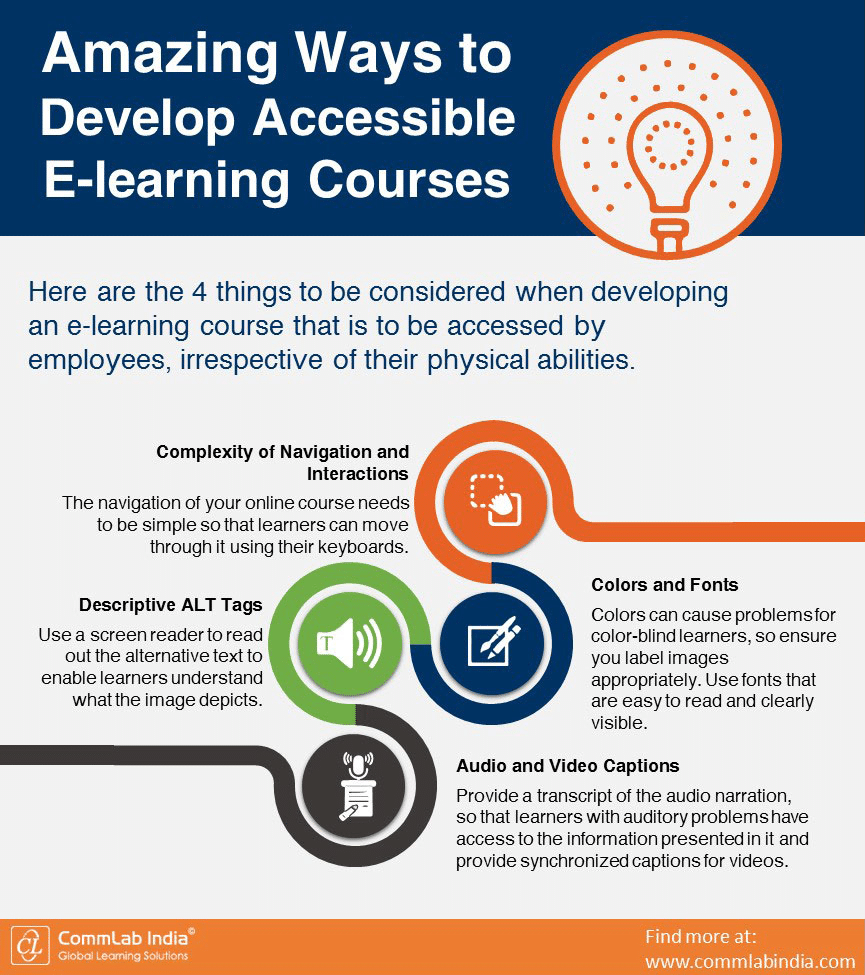
Source: CommLab India
In fact, training courses benefit everyone in a team. From management training to guidance on call handling, everyone can do with a bit of updated training now and again. It helps keep people on the same page and makes sure the organisation is the most up to date it can be.
So, what is online training specifically?
To start with, it’s important to know that there is a difference between e-learning and online learning. E-learning is any type of learning that has been discovered digitally. For example, if you receive an email stating facts about a current affairs situation you weren’t aware of, you would have learnt the information through e-learning.
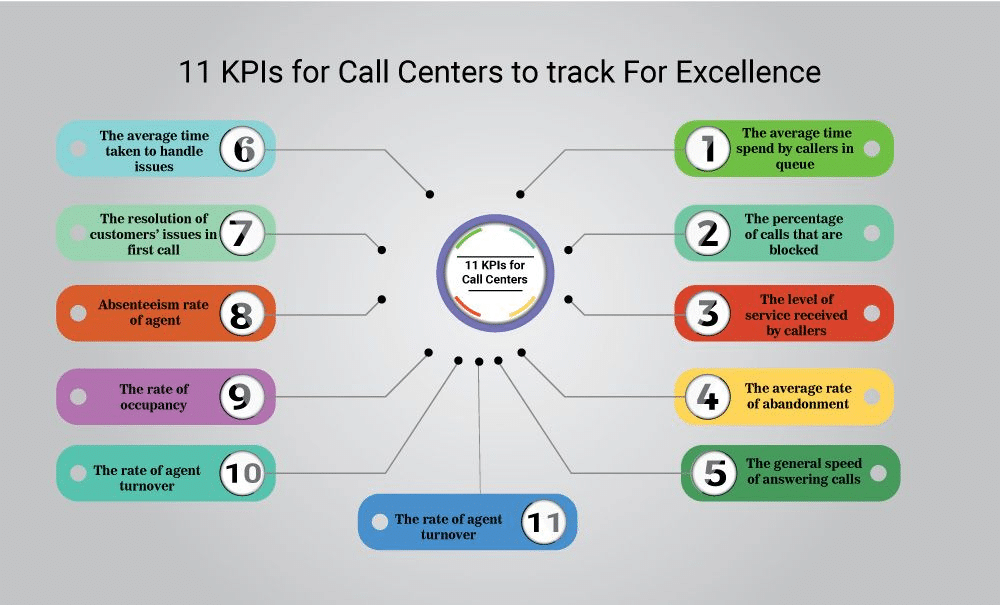
Source: ICCS-BPO
An online learning course is less generalised. It’s a course that has been set up with a particular purpose in mind and to teach specific information. The courses are created and taught by professionals to teach important skills and lessons. For example, a person may want to learn how to code. This is not something that can be learnt digitally and needs in-depth lessons. So, an online course is a perfect place to do this.
In terms of call centre training, learning online can be done individually or as a group. Thanks to the accessibility we now have to video calls, we can take part in group meetings and tasks. Making learning just that bit easier.
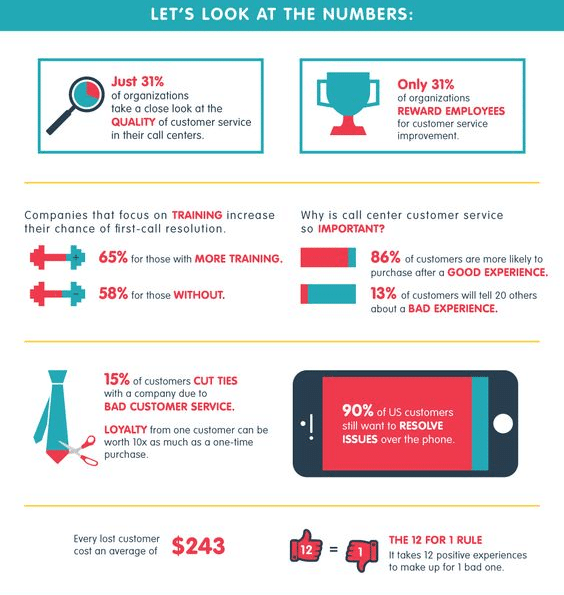
Source: Inc
Like with any type of online course, the teaching style may vary from course to course, too. It may be that one course encourages active listening and wants students to sit through a few video lessons, perhaps with a quiz at the end. Another course, meanwhile, maybe a live session, with questions and tasks for students throughout. Bear in mind that everyone has different learning styles, and you may want to talk to your staff about which method they would prefer. Be open and mix it up a bit if you need to.
Remember that just because the staff is used to talking to people all day, doesn’t mean they would prefer a style that means they have to discuss learning with their workmates.
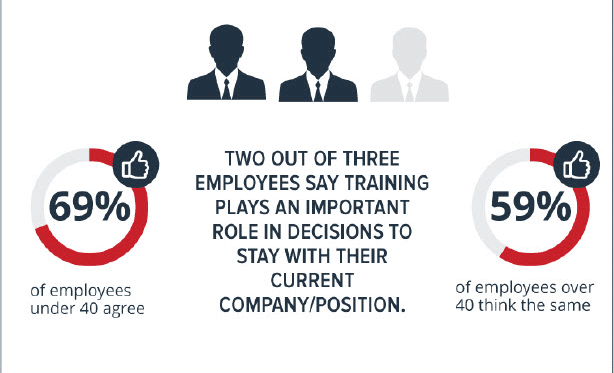
Source: West Unified Communications Service
Benefits of Call Center Training
You may have hired somebody who is the perfect candidate. They have a confident phone manner. They are polite and friendly. And they get the job done with no problems.
That isn’t to say that they won’t need any training in doing the job better. Even if they have been at the call centre for ten years, there is always something to improve on or see from a different perspective. After all, we all have our strong and weak points. There is no harm in building on skills when needed.
As well as this, the world is always modifying. Tech is always updating, and the way we communicate is always changing, too. So, on a basic level, it’s also good to regularly take part in e-learning courses for that reason.
Source: Salesforce
However, there are several other reasons why, for call centre staff, it’s a benefit to take part in online training courses.
For a start, it is better for employees. According to ScoreBuddy, providing staff with training reduces turnover, increases satisfaction, encourages career growth, and improves profit margin. They tell us that a massive 94% of employees are more likely to stay in a company if they have the correct training.
Scorebuddy also says 64% of employees believe that training is the most important policy for a company along with a further 74% of staff admitting they don’t feel as though they are reaching their full potential.
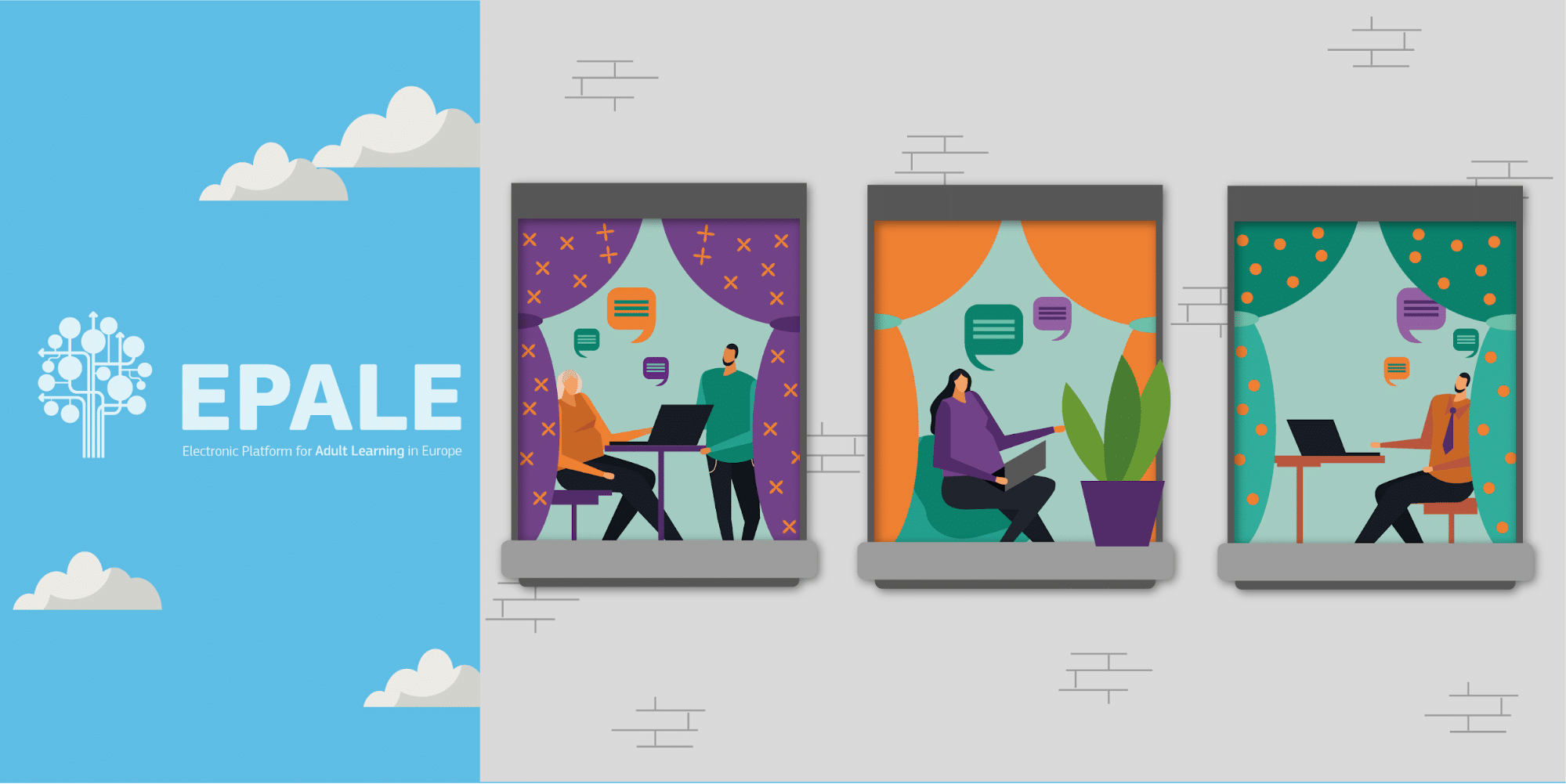
Source: pale
Encouraging employees to stay onboard means they get to know the company better and, as a result, get to know the customers better too. Meaning they can provide a better overall customer experience.
Another benefit of online learning for call centre agents is reduced pressure on staff. Do you remember back in school when you would sit with a room full of peers, and suddenly the teacher picks on you to answer a question? For even the most studious among us, it could be an embarrassing and intimidating moment.
Sometimes, learning as an adult can be like that too. There can be an expected pressure to know all the answers and speak out. And when nobody does, the room becomes uninterested and everything can feel like a waste of time all around.
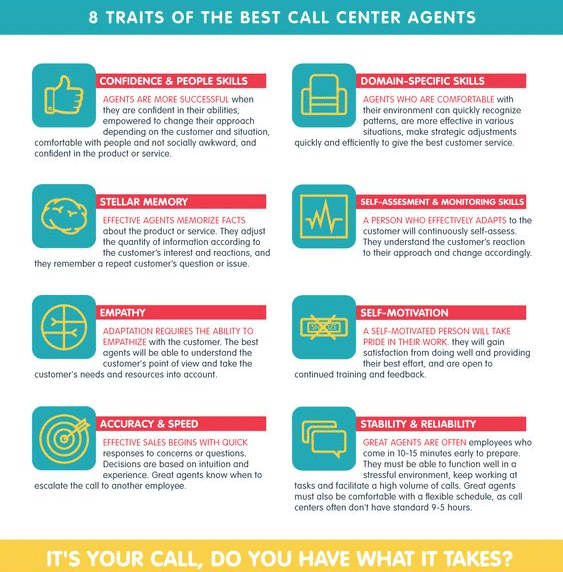
Source: Inc
So, when learning remotely, this problem is taken away. Or at least lessened. People have the chance to learn things in their own time and a comfortable place. Then, if you do decide to gather the team together to talk about the training, people will be more prepared. A good manager will also use tricks to make people feel comfortable talking in a group over a video call.
You may presume that people who talk to customers all day are happy to talk to teammates, too. But we are all different!
Another good point about online training is that you can have instant access to people to discuss points. Of course, in the office, you can physically approach people when needed, but they can sometimes be away from the desk or dealing with another matter. When talking to people digitally, they are always available. Well, during work hours at least.
If a person’s phone goes off, or they get a notification on the computer, they are more likely to check it straight away. Therefore, if a person needs to do a spot of e-learning, they can do it straight away.
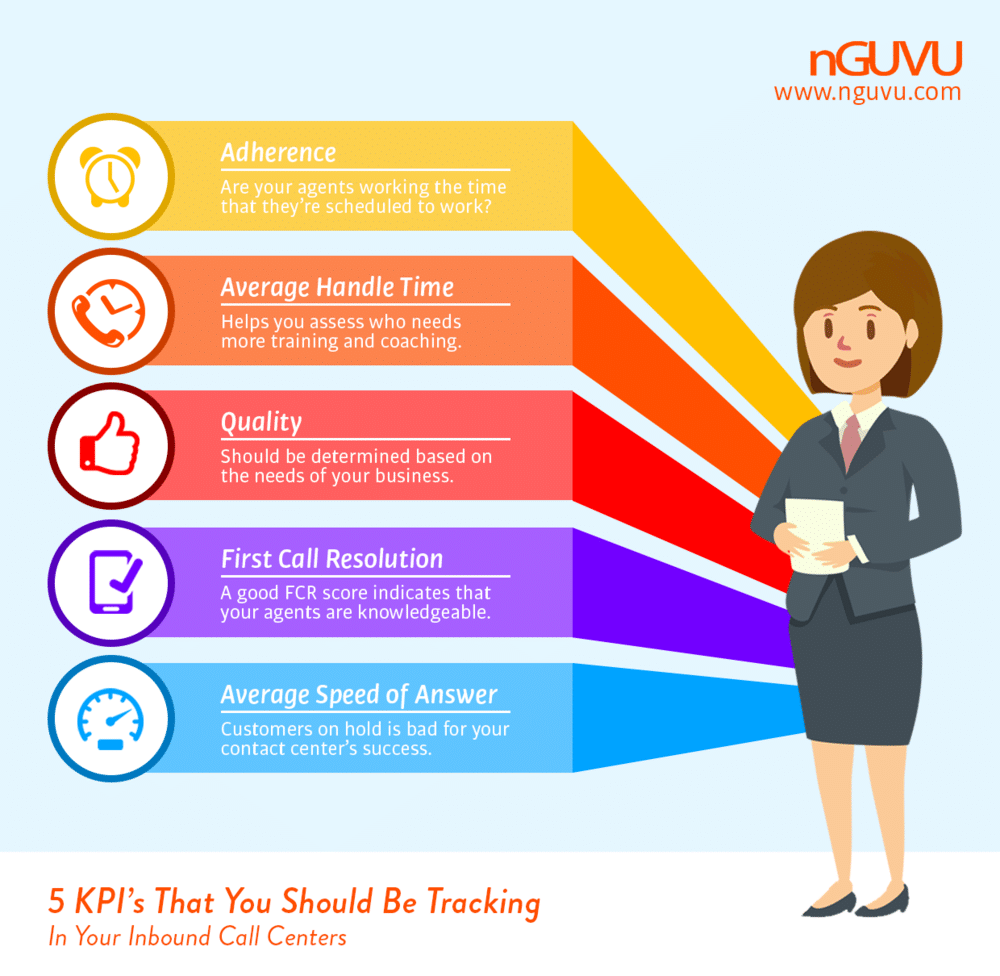
Source: nguvu
What’s more, by giving customer service representatives autonomy over their training, you are also building higher levels of trust with them. Having a manager who constantly watches over you, making sure you are ‘doing what you are told’ can bring negativity and anxiety to a role.
So, giving employees a chance to learn in their own time at home allows them to feel freer. Which will ultimately lead to higher levels of satisfaction for the job? Something that will instantly rub off on customers when communicating with them.
There are, of course, some downsides to online call centre training. One of the biggest problems being that people may get easily distracted when working from home. However, with the right advice and the right set up, this is easily solvable. For example, making sure that people have a quiet room in which to work.
Another issue may be that they don’t have the right equipment when working from home. It’s one thing training staff in using the latest tech, but if they can’t get their hands on that tech, what’s the point, right?
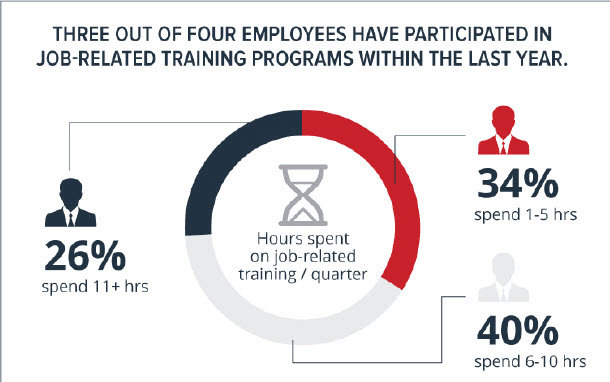
Source: West Unified Communications Service
Well, the whole world got thrown into this unprecedented situation together, and the people who have been working from home have managed to do well at it. McKinsey tells us that 75% of people who have used digital methods for the first time during COVID will continue to use this adopted way of life from now on.
That means that tech has become a regular part of our home and working lives. So, why not take this opportunity to get ahead of the game and head into a new future with newly learnt skills?
Whether your staff continues to work from home or move back to the office, taking part in call centre training will keep them up to date and prepared.

Source: iberdrola
Essential Call Centre Skills Needed
It’s one thing talking about generic skills that everyone needs, like moving forward with tech or not tolerating a toxic culture, but what are the specific call centre skills?
As a group of people who deal primarily with customers, call centre skills will be different from those of other people who deal with customers, as the retail staff. And they are even different from those that spend their days talking to people on the phone, like emergency service phone operators.
Call centre agents need to be quick, have clear communication, and need to stay ahead of the competition.
So, what are the essential call centre skills needed?
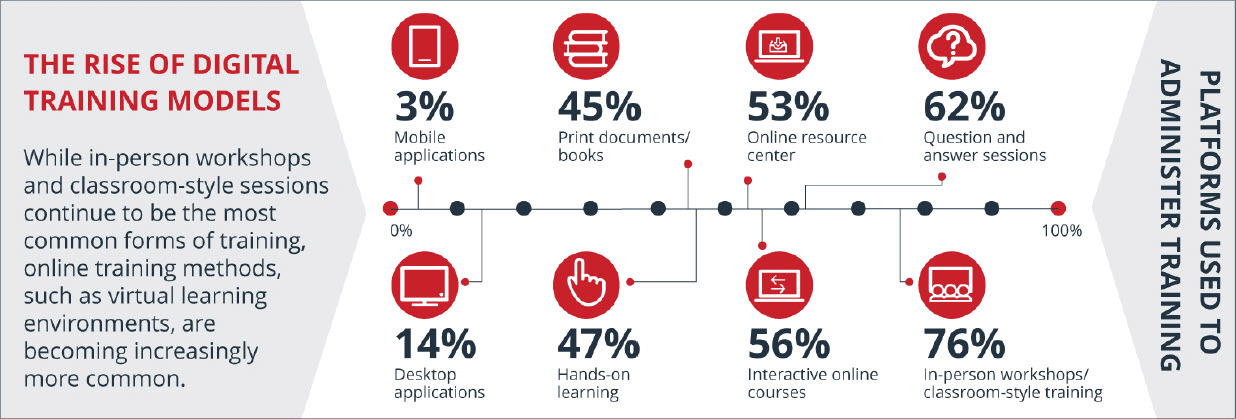
Source: West Unified Communication Service
1. Problem-solving.
Problem-solving isn’t the same as completing a crossword or finding your way out of a maze. It’s more like figuring out how to deal with a difficult task, especially at work.
Working out problems is something that customer care workers deal with every day. When a customer phones a call centre, an agent will not only have to listen to their problem, but they will have to find a solution to result in complete customer satisfaction.
Say, for example, a person phones up complaining that they have been charged twice for a bill. It’s no good if all the agents can say in response is “I don’t know why that happened. Speak to your bank”. Because that just sends a customer in circles and can create a stressful situation where all the caller does is complain about you on social media.
The call centre agent needs to be able to look into different reasons why this might have happened. They need to analyse the account, analyse the bill, and see what went wrong. Then they need to solve the issue. And if they can’t, they need to give the best advice they can. It may still be that they need to talk to the bank, but at least if the calling worker has looked into the situation, they will have used their call centre skills to do what they can.

Source: Bisk
Essentially, customer care agents need to realise what any problem is and solve it swiftly.
Training in this area will make sure employees know how to identify issues and use their initiative to solve them.
2. Empathy and sympathy.
Just to clarify, empathy is a shared experience or feeling. Sympathy is the perception of a shared experience or feeling.
This is an essential one. Depending on the type of calls your company deals with, sometimes people can be phoning up about some severe issues. For example, say your agents are selling mortgages. A client may phone up to say they can’t keep up with their payments because their partner has died. Call handling and the way it’s dealt with in this scenario is vital. An agent needs to step back from their role as a seller to speak to people on a human level.
Instead of trying to push extra sales, they need to do what they can to help this customer out. And this requires empathy. The last thing the customer needs at that point is a pushy agent. Dealing with the issue sensitively will help to find a resolution for both your firm and the customer.
Even if the scenario isn’t as serious as the one mentioned above, call centre workers still need to have empathy or sympathy. When people call a company, they can sometimes be annoyed or angry. A point which isn’t helped when they have to wait 45 minutes just to talk to someone. Not only does showing empathy or sympathy help them to calm down, but it also helps the issue be dealt with on a human level.
Consider when you have an issue. You might go on a rant to your friend. Think about how you want your friend to react. You want them to empathise or sympathise with the scenario. If they start arguing with you or contradicting you, likely, you will just get more frustrated.
These humanistic traits are transferable when talking to clients as a call centre agent. Because at the end of the day, a customer is a person and an agent is a person. If you treat a customer as a person, they will treat you as a person, too.
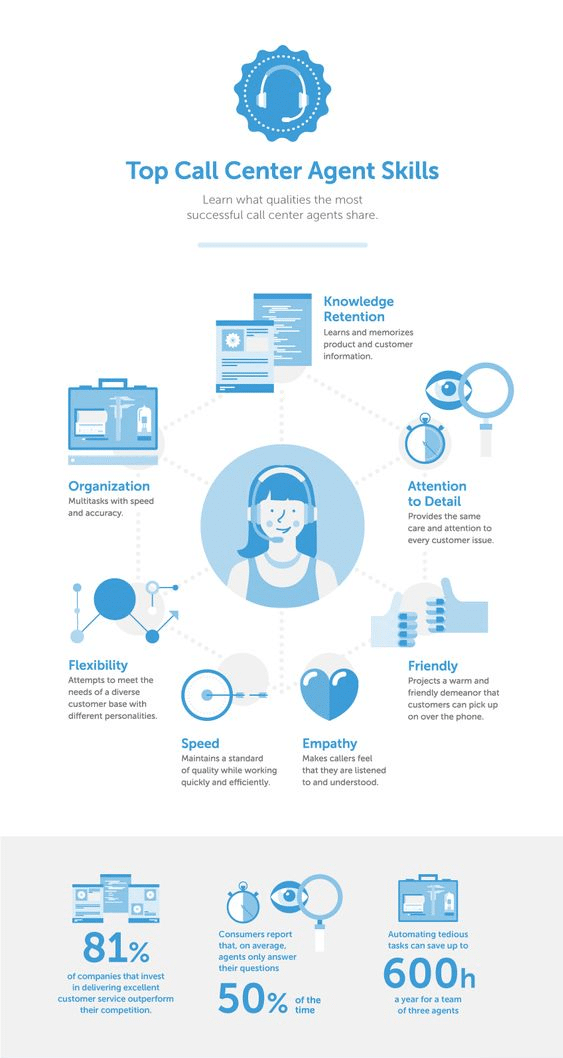
Source: Talk Desk
3. Knowledge.
Knowledge is power. Or so they say. Well, in this scenario, it is. And that’s why customers are phoning because they want to speak to someone who has all the knowledge and therefore has the power to do something about their problems.
Philosophy aside, it is vital for call centre agents to have product and company knowledge. Otherwise, it’s pointless the client making the call. If they talk to an agent who does not know, not only does it make your company look bad, but it leaves the customer frustrated and still without an answer.
What’s more, when an agent has the best product knowledge possible, they can make more suggestions and solve problems more quickly. All of this can be done with training every time there is a new product.
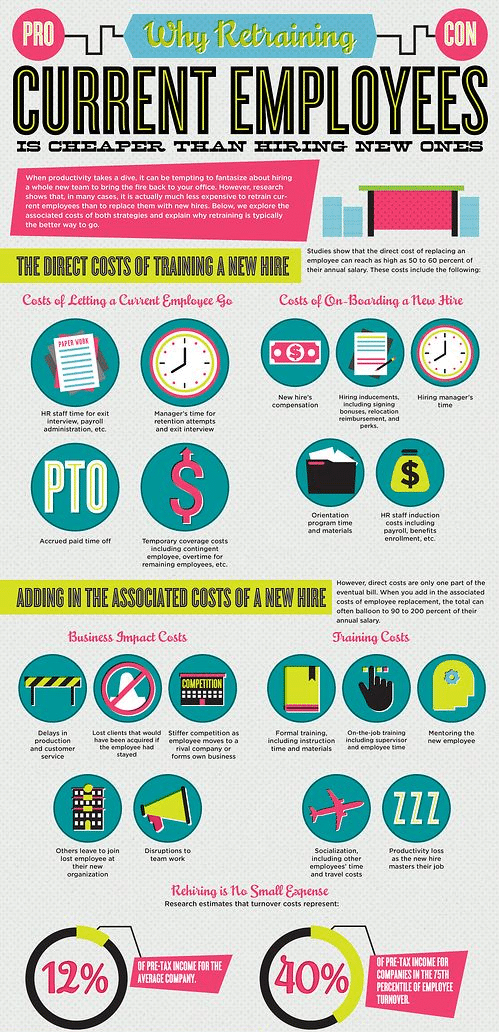
Source: Tiny Pulse
4. Communication.
For anything in life that involves talking to other people, communication is key. But for call centre agents, it is a particularly essential skill to have because people are looking at them as the person to keep them up to date whether that be with a product or a problem.
The whole point of a contact centre agent is to have a communication medium between company and customer. Imagine phoning up about a product to receive nothing but radio silence. You would be left confused and annoyed.
A big part of being a good communicator can listen and respond to people. This may involve trying to figure out what the customer wants if they can’t quite communicate it themselves. Again, put yourself in the customer’s shoes.
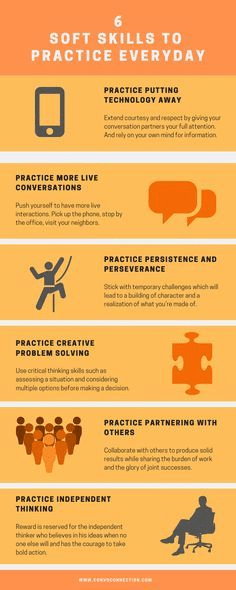
Source: condo connection
5. Patience.
People phone call centres for numerous reasons. At times it’s just for a quick question; at others, it’s to discuss an on-going dilemma. But no matter what the problem, the agent needs to be calm and patient. The customer may be a little worked up, or they may have had to phone up several times and have a long scenario to explain.
Some people may just like to talk. And there is nothing wrong with that.
Whatever it is, the customer needs time to talk and explain things. They may even have a lot to clarify because a different agent gave them bad advice and they are confused. A call worker needs to be able to listen to them and respond politely and correctly.
An agent who takes their time and treats callers like a fellow human being will leave a much better impression than someone who clearly doesn’t care. Having patience in difficult situations will help bring the customer back to your company.
There are many essential skills call centre agents to need to do their job the best they can. These are some of the key abilities that, with the right training, will help any worker to excel.
Types of Call Centre Training For Agents
Everybody learns differently, and the effectiveness of each type of training depends on how it is taught. A person will also receive different training, depending on the type of job they have.
Naturally, there are different types of training sessions and different topics of training available for call centre agents.
These are a few areas that you or staff may be interested in finding out more about.
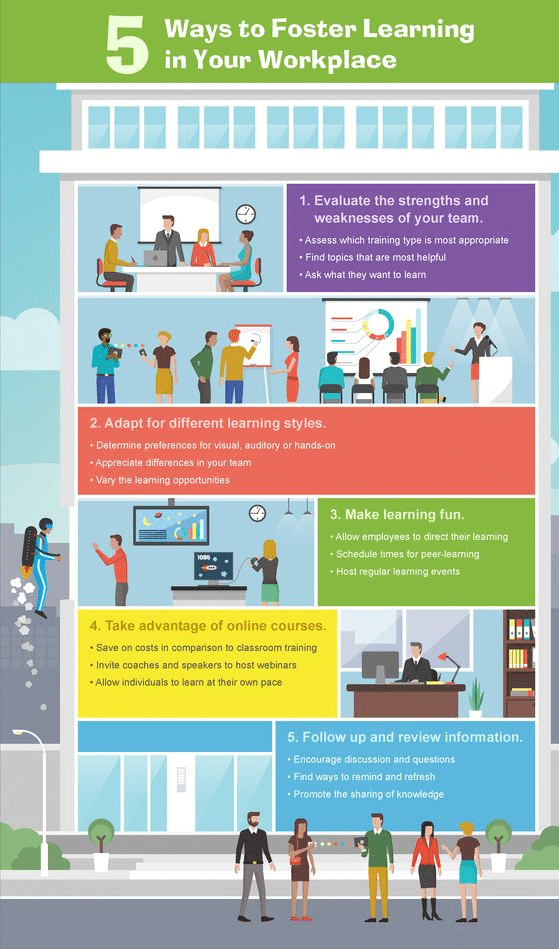
Source: eLearning infographics
1. Free courses.
This may require a little bit of digging, but there are free courses available online. YouTube is a great place to start for pieces of advice or specific needs. Blogs and certain websites also give free training for softer, human-based skills. Such as learning confidence or empathy.
Alternatively, you can pass around certain books to your team. If you can’t physically give them to staff due to social distancing, suggest they download them on a digital reading app. You could even take extracts and key points from books and make staff aware of these points in an email. Podcasts are another great place from which to get free information from experts.
2. Having a visual guide.
The first thing you can do is to show a training video for employers. Then, get them to write out key points and surround their working area with the key information.
This is a great online learning and customer service training tool for that first starting out in the company. Using screenshots and examples of how to handle customer queries will ensure answers stick in the memory. It also helps people to learn how to navigate any systems or use any type of tech in a practical way that reflects what they’ll do day-to-day.
You could even occasionally test employees after using this method to see how well they are learning. Doing this can help you figure out who needs a little bit more help and who is ready to move on.
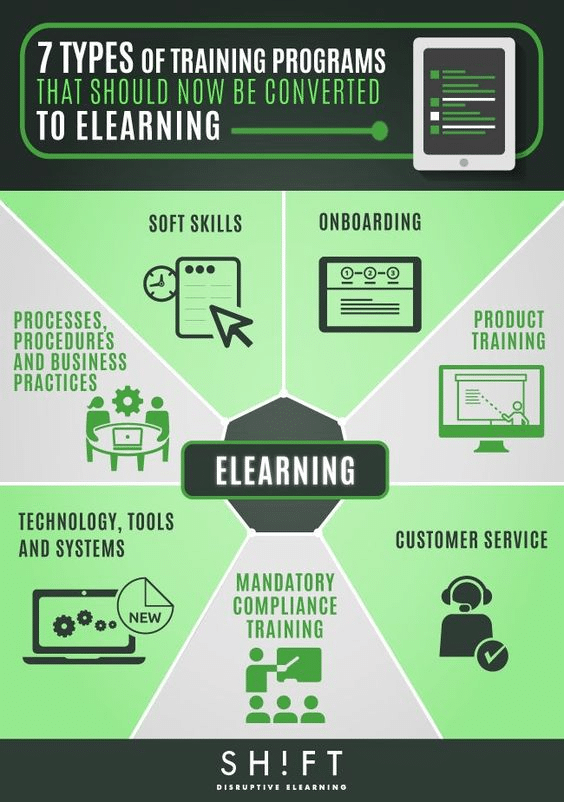
Source: ShiftLearning
3. Games.
Consider training or testing people with games. What can start as a little bit awkward often ends up being a lot of fun? Even if you are deciding to quiz people, you can do it in such a way that it is not so much formal testing and more of a team-building event. It’s also something that can easily be done over video calls, too.
This type of e-learning can be done as an individual or as a team. It can involve using pictures, videos, texts, and audio to test people’s knowledge. Use your creativity to figure out fun ways to get people involved in this type of learning. You could even add an incentive. Such as, those that get 90%+ right get to finish work early.
4. Build on soft skills.
As already mentioned, improving skills such as empathy and communication are essential when working as a call centre operator. As well as aiding in many a different career path. Usually, the best place to teach these skills is in a classroom environment. But as that isn’t possible right now, the alternative is to do it over a video call. A teacher can still be used, and a discussion can still be had. It might be harder to act out scenarios, but it isn’t impossible.
A good way to learn from this is to do follow up sessions after the class. Try to encourage self-study, too. This may include videos, text, and audio pieces. All are great tools to assist CPD – continuing professional development.
5. Learn to use tech.
Tech is always developing, and the technology used in call centres is no exception to this. Therefore, to provide the best customer service possible, the staff need to learn how to use this tech. The best way to ensure this is through actual practice.
A YouTube video may help with areas that people are stuck with. But overall, using the programmes and solutions themselves will help it stick in their memory. There’s nothing like using a system to grasp how to perform speedy callback or other communication techniques.
Figuring out the methods and practices may take a bit of trial and error. However, the wait will be worth it.
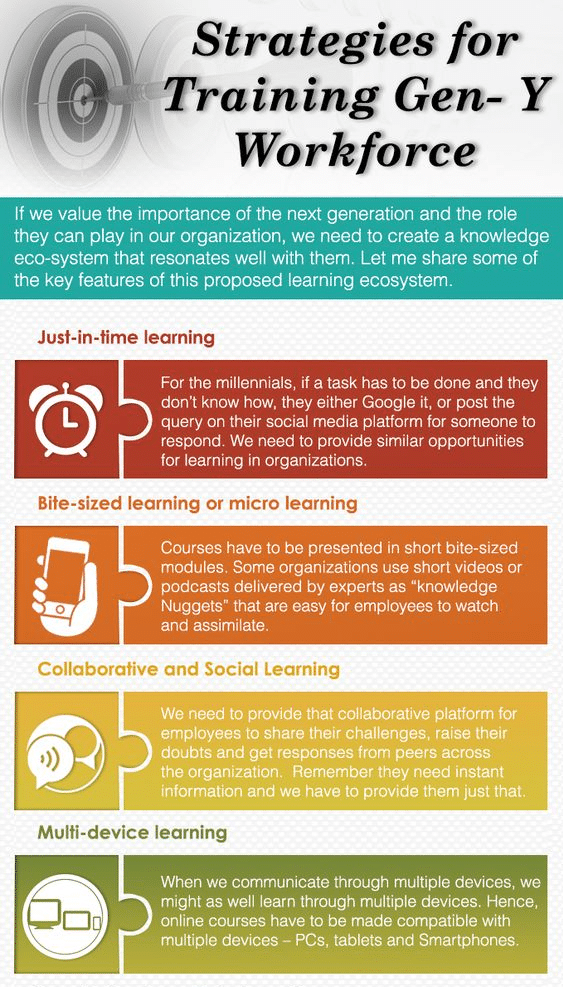
Source: commlabindia
Top Online Training Courses For Call Centre Agents
Using online customer service courses makes the learning process a lot easier, as it means they can be done in any place at any time. But before you rock up to your favourite café, ready to learn and be the best call agent the world has ever seen, you might want to have a taster of the types of courses out there.
Here are the top online training courses in the field to help your company be the best it can be:
Day One Technologies – This UK based company helps call centres in the UK and Europe to train staff. They mostly focus on companies that deal with high-pressured environments, such as banks. They have created an e-learning service to train staff simultaneously across multiple locations.
Build Complete Free Call Center Asterisk Issabel VoIP. – This video course is free on Udemy, making it accessible to all. It talks viewers through the basics of call centre learning and helps people discover how to optimise both inbound and outbound calls. It also teaches people how to use a CRM system.

Source: commlabsindia
Call Centre Excellence Series – A downloadable series costing between $449.95 (£341.11) and $719.80 (£545.53), the course covers every type of training a call centre agent needs. It teaches anything about how to deal with angry customers to increasing confidence with debt collection. The course also has a range of teaching methods, such as interactive activities and allowing a tailored learning objective.
Axonify – This company focuses on the telecoms industry and turns training into bite-sized and manageable chunks. The agent training is accessible over a range of devices and has seen some great results with big companies.
Call Centre Agent – Another course from online training site Udemy, these sessions teach the basics of becoming a call centre agent. For £9.99, students have access to videos, downloadable resources, and even get a certificate at the end.
Software and Master of Planning & Call Center Sizing – Again, available on Udemy, this course costs £9.99 and is a practical course that focuses on inbound calling. Free software is also included in this course.
There is a huge variation in the call centre training courses out there, but these suggested sessions cover at least the basics and are all available online.

Source: B2Wgroup
Tips For Future Call Centre Agents
Even with the best training, talking to customers all day can be hard. Some people are lovely, and some people are, well, not so much.
Meaning it can be hard to give service with a smile when this gets on top of you. Sponge says the global average of turn-over rates for call centres is 25%.
This is why making sure staff are happy is so important. Here are a few tips to make sure the staff stays happy.
- Trust your agents – Trust is important in any relationship. This goes for employer and employee relationships, too. If people believe that they are trusted, they will be more relaxed, and their work will be of better quality.
When working remotely, unless you are planning on putting spyware on their computers, people have to be trusted. Most conversations in call centres are recorded anyway, so if you really suspect a person, you can check the recording. Otherwise, just let them get on with it. You are sure to see positive results.
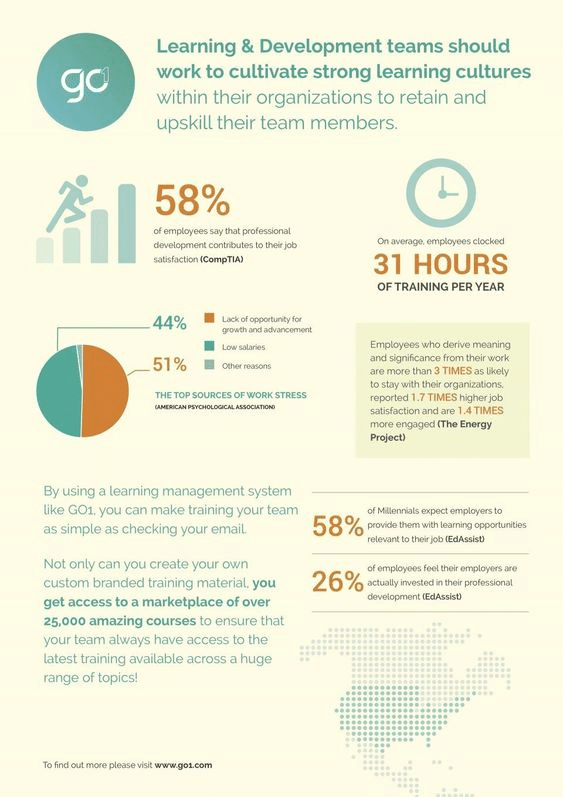
Source: elearnigninfographics
- Create a development strategy – this strategy not only supports your business plan but aids workers too. It attracts the top talent in your field and motivates employers who will know there are manageable goals in place.
Employing a strategy also ensures you are creating a positive work culture, making sure that employees are capable of doing what is asked of them.
- Communicate through video calls – when working in an office, it’s good to have to check up meetings anyway. So, when working remotely, you can do this through video call instead. Having a friendly chat with employees once a week helps you to find out how they are doing with the job and how they are doing in general.
You can ask if there is anything they are finding hard and anything they may need a bit more training in. There might even be something going on at home that is affecting their agent performance. It could be that you discover a pattern and realise some working practices need to change. Allowing employees, to be honest, open, and not judged will make them feel more respected and want to stay longer.
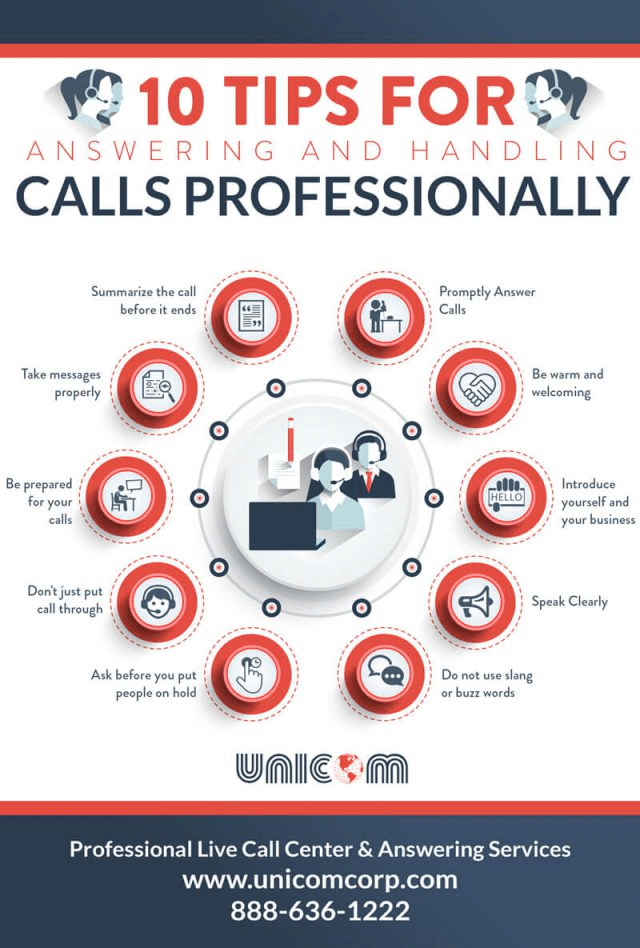
Source: Unicom
Having happier call centre employees will only reflect well on your firm. Not only will their positivity be heard in their voice when talking to customers, but people may be more likely to use your firm, knowing that you treat the staff so well.
Conclusion
From the shop floor to the call centre, part of the package of customer care is making sure that all consumers are receiving the best service possible throughout their experience. Giving great, personalised customer service over the phone, whether that means giving product advice or dealing with a complaint, requires numerous skills. Which means constant training and upskilling is vital.
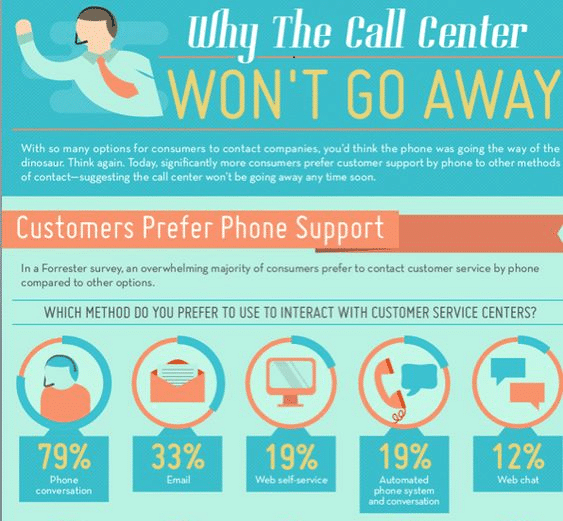
Source: Fonolo
People shouldn’t be put off training whilst working from home. If anything, it’s a great opportunity to take part in online learning and work at one’s own pace.
Doing an online training course benefits both staff and customers. It makes employees feel valued and encourages customers to keep coming back, knowing their problem will be dealt with in a knowledgeable and empathetic way. All thanks to the education and preparation that your staff – both team leaders and those on the front-line – will have received.
Originally published Sep 22, 2020, updated Jan 17, 2023

